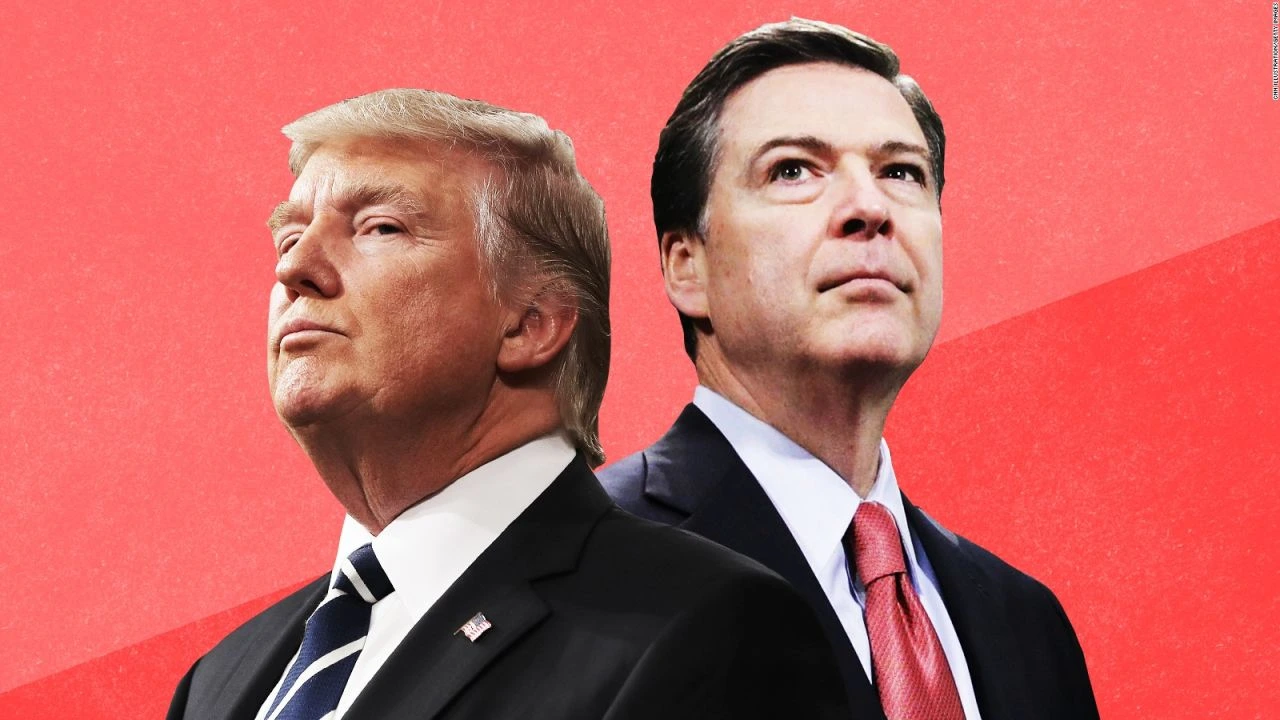WASHINGTON — Former President Donald Trump’s directive to prosecute former FBI Director James Comey has triggered renewed scrutiny over the independence of the Justice Department, as internal dissent, high level resignations, and mounting political pressure highlight a growing clash between presidential authority and legal norms.
The indictment of Comey marks a pivotal moment in Trump’s second term agenda, reflecting a broader campaign of retribution aimed at former officials he accuses of targeting him during previous investigations.
According to multiple current and former officials, the decision followed weeks of escalating pressure from the White House, culminating in the resignation of US Attorney Erik S. Siebert, who reportedly believed evidence against Comey was insufficient.
The Alexandria based US Attorney’s Office, one of the nation’s most influential prosecutorial districts, has been at the center of the effort. Career prosecutors described a tense environment in recent weeks, with staff uncertain about their leadership and future. On Sept. 19, more than a dozen attorneys confronted Siebert in his office, demanding clarity as rumors swirled about his departure.
“Quitting was the easiest thing I’ve ever done,” Siebert told colleagues, according to a person present during the meeting. Trump’s directive, announced publicly via his Truth Social account, came after Attorney General Pam Bondi expressed readiness to move forward with the indictment.
The president stands by Attorney General Bondi and appreciates her efforts to make America safe again and hold criminals accountable, White House press secretary Karoline Leavitt said in a statement. A defiant Comey, speaking in a video after the indictment, denied wrongdoing. We will not live on our knees, and you shouldn’t either, he said.
Legal scholars and former Justice Department officials warn that the prosecution could further erode institutional independence. This is unprecedented in modern American history, said David Kramer, a former federal prosecutor now teaching at Georgetown Law.
The Justice Department traditionally shields itself from political directives. What we’re witnessing is a direct challenge to that principle. Martha Collins, a constitutional law expert at the University of Virginia, said the episode raises questions about selective prosecution.
When a president uses prosecutorial power to target perceived enemies, it undermines public trust in impartial justice, Collins said. Supporters of Trump argue the prosecutions are justified.
Accountability should apply equally, said Ed Martin, head of the Justice Department’s “weaponization” task force. “If former officials mishandled classified information, they must face the same scrutiny others have.”
While political disputes over Justice Department actions are not new, data from the Brennan Center for Justice show that direct presidential involvement in specific prosecutions has been exceedingly rare in recent decades.
Comparatively, the Nixon administration’s efforts to influence investigations during Watergate sparked legislative reforms to insulate the department. Analysts note that the pace of politically sensitive indictments has accelerated since Trump’s return to office.
In the past three months, inquiries have been launched into several high-profile figures, including former National Security Adviser John Bolton, New York Attorney General Letitia James, and Georgia District Attorney Fani Willis.
Historically, DOJ prosecutions against political figures undergo rigorous review to ensure impartiality, said Steven Rodriguez, a senior fellow at the Brookings Institution. The current volume and targeting pattern suggest a more centralized directive.
Inside the Alexandria office, anxiety is running high. Several prosecutors have begun contacting private firms for potential employment, while others have drafted memos to document internal decisions.
It feels like walking a tightrope, said one assistant United States attorney who requested anonymity. “We’re balancing our legal duties with intense political scrutiny. No one wants to become collateral damage.”
Political Fallout and Public Reactions
At a nearby café, residents expressed mixed feelings. “If Comey did something wrong, he should face justice,” said Arlington resident Thomas Harris. “But it’s hard to ignore the political undertones.”
Others voiced concern about the precedent. “Using the justice system for revenge sets a dangerous path,” said local teacher Laura Nguyen. “It’s supposed to be impartial.”
More indictments appear imminent. Trump hinted at additional prosecutions during a White House briefing. It’s not a list, but I think there will be others, he told reporters, adding, These were corrupt, radical left Democrats.
Officials confirmed that charges against Bolton, related to alleged retention of classified documents, could be filed soon. Meanwhile, investigations into James, Schiff, and Willis continue, though some lack substantial evidence.
Experts warn that ongoing actions could deepen institutional strain. If this trend continues, future administrations may inherit a Justice Department seen as an extension of political will rather than law, said Collins.
The prosecution of James Comey, driven by directives from the Trump administration, has reignited debates over the balance between presidential power and judicial independence.
As additional cases loom, Justice Department officials face mounting pressure to uphold legal standards while navigating unprecedented political demands.
Whether the courts ultimately validate these prosecutions remains to be seen, but the outcome will likely shape public perception of justice in an era where political retribution and legal authority are increasingly intertwined.
